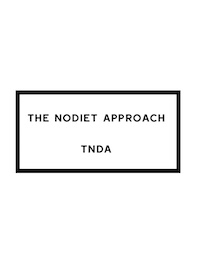Fat: guilty or innocent?
Many debates revolve around fat; is it here to kill you or to save you from a heart attack?
There are different types of fat, the bad fats: saturated fat (from animal source mainly) and trans fats (created in labs to better preserve industrial pastries) and the good fats; monounsaturated fats (olive oil, canola oil..) and polyunsaturated fats (omega 6 and omega 3 found in fish oil and some seeds).
Saturated fat sources are butter, lard, cheese, and red meat. Trans fats are mainly found in margarine, donuts and industrial sweets.
Most Americans envy French people‘s thin figure that despite having skinny bodies consume a diet high in saturated fat (croissants, foie gras, entrecôte…). They even manage to have low incidence of heart disease and obesity. Studies explained that phenomenon as resulting from red wine consumption and its antioxidant content (resveratrol) thus preventing cardiovascular diseases. In my opinion,French people benefit of something I would call ‘hidden exercise’ given the fact that they exercise without aiming to do so just by walking to find a cab or roaming around the city contemplating Notre Dame Church or the Eiffel tower, or using public transport making it easier to gain supplemental miles in a pedometer.

Genes play an important role in obesity and weight gain but we are not destined to be fat if our parents or grandparents are overweight because the body has the ability to change genes over time. The best way to combat the fat gene is to exercise and maintain a healthy diet while consuming all kinds of fats in moderation. Keep the croissant for special occasions(week end brunches or vacation trips). Fat is essential for the body it is important for organ cushioning, skin care, hair growth and brain formation of fetus in pregnant women.
A healthy day should be constituted of all three macronutrients (carbohydrate, protein and fat) in specific percentages known as Daily Recommended Intake (DRI); 50% Carbohydrates, 30% Fat and 20% Proteins as per the Harvard sectioned plate.
People fear fat and consider it directly linked to cardiovascular disease and obesity but the real problem is junk food consumption. People with low income are unable to spend money on organic carrots because their price equals a fast food meal. Some population lack nutrition education and make poor nutrition choices.
For example; the Gulf regions had a sudden change in eating habits that lead to an increased obesity rate. The population shifted from drinking Camel milk, eating dates and engaging in long walks to industrial food with little or no exercise but instead luxury car racing and heavy fatty meals .(Koweit ranked the highest in obesity rate).
Butter is considered as the enemy in the diet industry, however a moderate daily intake is perfectly fine (for example 1 teaspoon of butter on your morning toasts). It is not linked to heart diseases if consumed in moderate amounts. Butter is rich in vitamin A and D which are important for skin and bone health.
Omega 3 is essential for protecting the heart, mainly found in fish oils, flaxseeds and chia seeds, the body absorbs it with the help of omega 6 containing foods (ex: sunflower oil). So it is best to eat them in a ratio of 4 (omega 6) to 1 (omega 3). For example cook in sunflower oil and have some chia seeds in your salad.
Oat is a popular food that can lower bad cholesterol (LDL) because of its high fiber content that acts like a sponge thus able to trap some of the dietary fats. The amount necessary for it to be functional is one cup of porridge or 3 oat muffins per day! It would be wiser to opt for the porridge as the health benefits in the muffins are much lower due to its high sugar content.
Exercise is an important part of a healthy lifestyle and is crucial for a stable body weight despite occasional desserts that are essential to fulfill occasional cravings. In my opinion it is better to eat a satisfying meal every once in a while rather than diet for weeks and later binge on fast food.
Enjoy your meals and aim for MODERATION!














 Ingredients: >2 cups all purpose flour >2 tsps baking soda >1 and a half...
Ingredients: >2 cups all purpose flour >2 tsps baking soda >1 and a half... 




